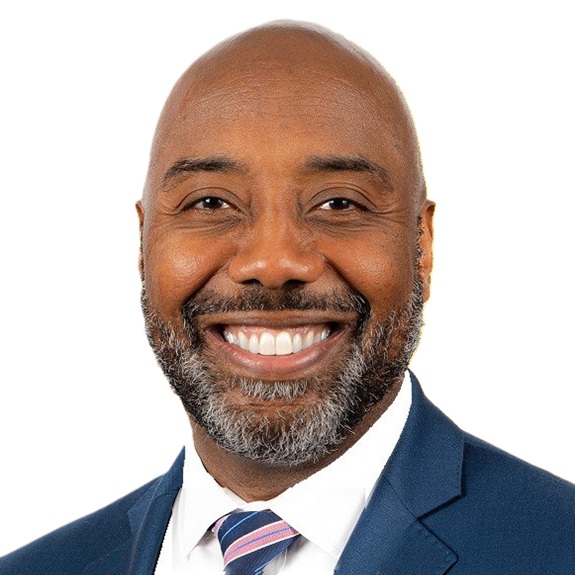Early 401(k) Withdrawals: Benefits, Risks and Alternatives
If you need money now and are thinking about tapping your 401(k) savings, you might want to consider other available options.


Profit and prosper with the best of Kiplinger's advice on investing, taxes, retirement, personal finance and much more. Delivered daily. Enter your email in the box and click Sign Me Up.
You are now subscribed
Your newsletter sign-up was successful
Want to add more newsletters?

Delivered daily
Kiplinger Today
Profit and prosper with the best of Kiplinger's advice on investing, taxes, retirement, personal finance and much more delivered daily. Smart money moves start here.

Sent five days a week
Kiplinger A Step Ahead
Get practical help to make better financial decisions in your everyday life, from spending to savings on top deals.

Delivered daily
Kiplinger Closing Bell
Get today's biggest financial and investing headlines delivered to your inbox every day the U.S. stock market is open.

Sent twice a week
Kiplinger Adviser Intel
Financial pros across the country share best practices and fresh tactics to preserve and grow your wealth.

Delivered weekly
Kiplinger Tax Tips
Trim your federal and state tax bills with practical tax-planning and tax-cutting strategies.

Sent twice a week
Kiplinger Retirement Tips
Your twice-a-week guide to planning and enjoying a financially secure and richly rewarding retirement

Sent bimonthly.
Kiplinger Adviser Angle
Insights for advisers, wealth managers and other financial professionals.

Sent twice a week
Kiplinger Investing Weekly
Your twice-a-week roundup of promising stocks, funds, companies and industries you should consider, ones you should avoid, and why.

Sent weekly for six weeks
Kiplinger Invest for Retirement
Your step-by-step six-part series on how to invest for retirement, from devising a successful strategy to exactly which investments to choose.
As a Kiplinger reader, you’re likely someone who manages their finances thoughtfully and has been saving for retirement in a tax-advantaged plan like a 401(k). You’ve also probably heard that taking cash out of your 401(k) before you’re 59½ is generally inadvisable, given the taxes and penalties on early withdrawals.
But even the most responsible of us can face a financial emergency and have thought about tapping into savings stashed in a 401(k). Maybe you have unexpected medical bills after an accident or hurricane damage to your home. Or maybe you need funds to pursue an exciting new opportunity, like buying a home, starting a business or going back to school.
Either way, if you need assets from your 401(k) now, here are some ways to minimize penalties — and a few other (potentially better) options to get you through financial straits.
From just $107.88 $24.99 for Kiplinger Personal Finance
Become a smarter, better informed investor. Subscribe from just $107.88 $24.99, plus get up to 4 Special Issues

Sign up for Kiplinger’s Free Newsletters
Profit and prosper with the best of expert advice on investing, taxes, retirement, personal finance and more - straight to your e-mail.
Profit and prosper with the best of expert advice - straight to your e-mail.
Options for 401(k) early withdrawals
Your reason for disbursing money from your 401(k) and the way you go about it can make a big difference in the taxes, penalties and interest rates you’ll pay. Some of the most common avenues for avoiding the 10% early withdrawal penalty include:
Taking a hardship withdrawal. Most 401(k) plans allow withdrawals in a period of dire financial need. This typically involves difficulties stemming from medical expenses, costs relating to the purchase of your principal residence, tuition and related educational fees or expenses, payments necessary to prevent eviction from or foreclosure on your principal residence, burial or funeral expenses, certain repair costs for your principal residence and any losses or expenses incurred by a federally designated disaster (such as a hurricane, wildfire or industrial accident). Your 401(k) website will have more information, including withdrawal amounts, terms and conditions.
Remember: While this type of disbursement isn’t subject to the usual 10% penalty, it is subject to income taxes.
Obtaining a loan. If you need money now but are confident you can pay it back later, taking a loan from your 401(k) is an option. Most plans allow loans of up to $50,000 for first-time borrowers, paid back, including interest on the loan, into the plan over a period of up to five years.
The interest rates for these loans can hover around 9%, but will vary based on current prime interest rate plus 1% — an attractive option when rates for a personal loan can be higher, particularly for those with less-than-stellar credit. Notably, these loans are not subject to penalties or income taxes.
Structuring periodic payments. Though less common, you can also elect to take a 72(t) distribution, also known as a substantially equal periodic payment, from your 401(k) plan. These can come in three forms: required minimum distributions (RMDs), fixed amortization or fixed annuitization. While you can leverage this option at any age, they are dependent on life expectancy factors, and you should work with your financial adviser and/or CPA to select the best method for you.
While the 10% early withdrawal penalty doesn’t apply in this case, these distributions would be subject to income tax. They also come with some drawbacks: You cannot take the full amount in a lump sum, have little flexibility once the initial terms are set and must continue with payments for either five years or until age 59½ (whichever comes first). Still, these can be useful for those who want to retire early.
Special circumstances. Outside of immediate hardship, there are other special situations that will allow you to draw on your 401(k) early without a penalty. Examples include disability, terminal illness or recently giving birth to or adopting a child. Similarly, if you need to make payments in the course of a divorce, you can access a lump sum without penalty (though it may be subject to income taxes depending on the terms of your qualified domestic relations order).
With all options, keep in mind that the rules and requirements will vary with your specific plan, so be sure to examine those carefully before making any decisions.
Alternatives to a 401(k) withdrawal
Since drawing on your 401(k) can hurt your retirement savings — both in reduced principal and missed market returns — you should explore other ways to access cash depending on your financial situation.
Some alternatives include:
Drawing on home equity. If you own your home, establishing a home equity line of credit can allow you to cover your expenses or consolidate debt from other loans with a better interest rate (the current average for a home equity loan is around 9%). By borrowing against your home’s value, you can get through a financial rough patch and repay what you borrowed when you’re more financially stable. But there are many important considerations associated with drawing on home equity, and you should consult a qualified mortgage professional to learn more.
Leveraging life insurance. If you have a cash value life insurance policy, you may be able to withdraw contributions from or borrow against the cash value account for short-term funds. Interest rates for repaying this type of loan can vary considerably.
However, a word of caution: Loans and withdrawals from a life insurance policy reduce the policy’s cash value and death benefit and increase the chance that the policy may lapse. If the policy lapses, matures, is surrendered or becomes a modified endowment, the loan balance at such time would generally be viewed as distributed and taxable under the general rules for distributions of policy cash values. For variable life insurance policies, withdrawing from your policy’s cash value account can permanently reduce the value of your policy in the future, as you would lose out on the market return potential on the money that’s been withdrawn — meaning your beneficiaries may also receive less when the policy’s death benefit, which is the primary purpose of all life insurance, is paid out.
Consider your options carefully
Drawing on your 401(k), life insurance policy or home equity can be a lifeline when money is tight and you’re faced with a financial emergency.
But it can also mean borrowing against your future to fund your present — with serious financial implications. Before you decide to withdraw or take out a loan, ensure you understand the conditions, penalties and interest rates that will apply so that you can build a better financial future for yourself and your family.
This article, which has been written by an outside source and is provided as a courtesy by Stephen B. Dunbar III, JD, CLU, Executive Vice President of the Georgia Alabama Gulf Coast Branch of Equitable Advisors, LLC, does not offer or constitute, and should not be relied upon, as financial, investment, tax, legal, mortgage/home equity loan advice. Your unique needs, goals and circumstances require the individualized attention of your own tax, legal, financial, and mortgage /home equity loan professionals whose advice and services will prevail over any information provided in this article. Equitable Advisors, LLC and its affiliates do not provide tax or legal advice or services Stephen B. Dunbar III offers securities through Equitable Advisors, LLC (NY, NY 212-314-4600), member FINRA, SIPC (Equitable Financial Advisors in MI & TN), offers investment advisory products and services through Equitable Advisors, LLC, an SEC-registered investment advisor, and offers annuity and insurance products through Equitable Network, LLC (Equitable Network Insurance Agency of California, LLC). Financial Professionals may transact business and/or respond to inquiries only in state(s) in which they are properly qualified. AGE-6603227.1 (05/24)(exp.05/26)
Related Content
- Some 401(k) Early Withdrawal Tax Rules Have Changed for 2024
- The Average 401(k) Balance by Age
- New Roth 401(k) Rule Changes for 2024
- Types of Income the IRS Doesn't Tax
- Financial Fasting Can Trim the Fat From Your Spending
Profit and prosper with the best of Kiplinger's advice on investing, taxes, retirement, personal finance and much more. Delivered daily. Enter your email in the box and click Sign Me Up.

Stephen Dunbar, Executive Vice President of Equitable Advisors’ Georgia, Alabama, Gulf Coast Branch, has built a thriving financial services practice where he empowers others to make informed financial decisions and take charge of their future. Dunbar oversees a territory that includes Georgia, Alabama and Florida. He is also committed to the growth and success of more than 70 financial advisers. He is passionate about helping people align their finances with their values, improve financial decision-making and decrease financial stress to build the legacy they want for future generations.
-
 Stocks Shrug Off Tariff Ruling, Weak GDP: Stock Market Today
Stocks Shrug Off Tariff Ruling, Weak GDP: Stock Market TodayMarket participants had plenty of news to sift through on Friday, including updates on inflation and economic growth and a key court ruling.
-
 You Received a Life Insurance Payout. Here's How to Avoid an IRS Audit.
You Received a Life Insurance Payout. Here's How to Avoid an IRS Audit.You received a big check from your loved one's life insurance policy. Will the IRS be expecting a check from you now?
-
 Supreme Court Strikes Down Trump Tariffs: What's Next for Consumers and Retailers?
Supreme Court Strikes Down Trump Tariffs: What's Next for Consumers and Retailers?Tax Law This landmark decision will reshape U.S. trade policy and could define the outer boundaries of presidential economic power for years to come.
-
 I'm a Financial Planner: This Is How You Can Legally Divorce the IRS for the Rest of Your Life
I'm a Financial Planner: This Is How You Can Legally Divorce the IRS for the Rest of Your LifeWith some careful planning focused on the standard deduction, retirees who have large sums in tax-deferred accounts can avoid unpleasant tax bills and even part ways with the IRS for good.
-
 9 Ways the Wealthy Waste Thousands in Taxes: A Checklist for What Not to Miss
9 Ways the Wealthy Waste Thousands in Taxes: A Checklist for What Not to MissThe tax code contains plenty of legitimate ways for the wealthy and business owners to cut taxes. Use this checklist to minimize taxes and stay compliant.
-
 When Estate Plans Don't Include Tax Plans, All Bets Are Off: 2 Financial Advisers Explain Why
When Estate Plans Don't Include Tax Plans, All Bets Are Off: 2 Financial Advisers Explain WhyEstate plans aren't as effective as they can be if tax plans are considered separately. Here's what you stand to gain when the two strategies are aligned.
-
 Counting on Real Estate to Fund Your Retirement? Avoid These 3 Costly Mistakes
Counting on Real Estate to Fund Your Retirement? Avoid These 3 Costly MistakesThe keys to successful real estate planning for retirees: Stop thinking of property income as a reliable paycheck, start planning for tax consequences and structure your assets early to maintain flexibility.
-
 I'm a Financial Planner: These Small Money Habits Stick (and Now Is the Perfect Time to Adopt Them)
I'm a Financial Planner: These Small Money Habits Stick (and Now Is the Perfect Time to Adopt Them)February gets a bad rap for being the month when resolutions fade — in fact, it's the perfect time to reset and focus on small changes that actually pay off.
-
 Social Security Break-Even Math Is Helpful, But Don't Let It Dictate When You'll File
Social Security Break-Even Math Is Helpful, But Don't Let It Dictate When You'll FileYour Social Security break-even age tells you how long you'd need to live for delaying to pay off, but shouldn't be the sole basis for deciding when to claim.
-
 I'm an Opportunity Zone Pro: This Is How to Deliver Roth-Like Tax-Free Growth (Without Contribution Limits)
I'm an Opportunity Zone Pro: This Is How to Deliver Roth-Like Tax-Free Growth (Without Contribution Limits)Investors who combine Roth IRAs, the gold standard of tax-free savings, with qualified opportunity funds could enjoy decades of tax-free growth.
-
 One of the Most Powerful Wealth-Building Moves a Woman Can Make: A Midcareer Pivot
One of the Most Powerful Wealth-Building Moves a Woman Can Make: A Midcareer PivotIf it feels like you can't sustain what you're doing for the next 20 years, it's time for an honest look at what's draining you and what energizes you.